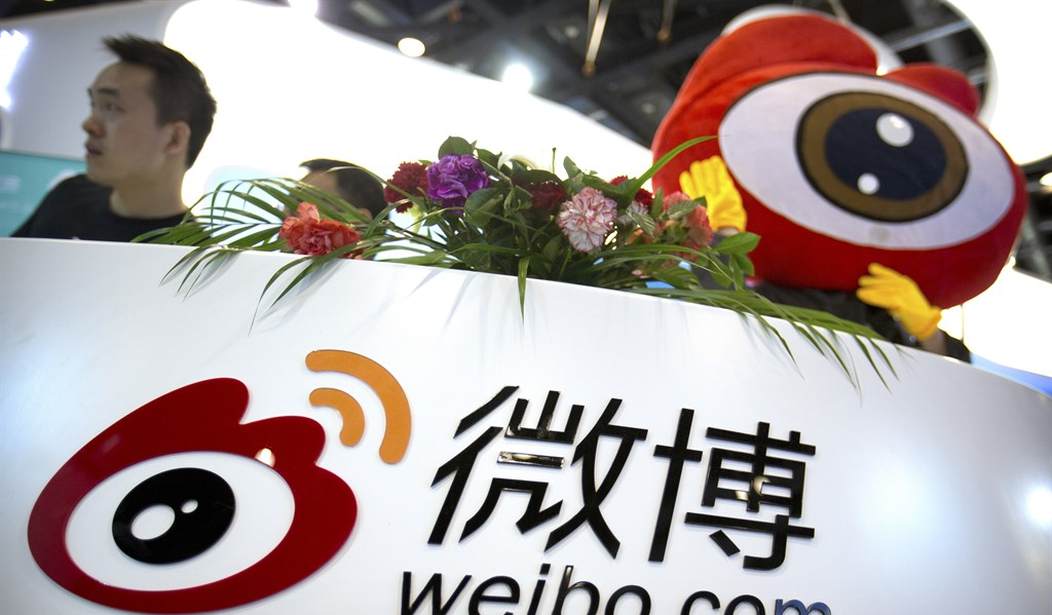There’s an ongoing effort by a group of anonymous people to embarrass the PRC by translating some of the stuff that regularly appears on Chinese social media. The Great Translation Movement is an attempt to reveal to the rest of the world to just how extreme and belligerent some of the voices within China have become.
And that’s important because the universe of Chinese social media is heavily curated by government minders. So if something is allowed to stay up that’s usually a clear indication the government approves of it. If on the other hand it gets censored, the clearly the PRC does not approve.
One of the things the PRC definitely does not approve is criticism of the communist party. Criticisms of the party or the leadership can earn you a visit from the police. Which is why what happened the night before last on Weibo is so surprising.
it all started around mid night in China (so noon EST), when two topics became No.1 and 2 respectively on Weibo.
1. Shanghai handled several rumors regarding Covid.
2. US is the biggest country of human rights deficit. pic.twitter.com/u0mchMCmbY
— Wenhao (@ThisIsWenhao) April 13, 2022
We've seen this kind of efforts throughout the Russian invasion of Ukraine, where China would direct criticism at the West and whitewash Russia.
But the interesting thing is that, this time, their efforts backfired, big time.
— Wenhao (@ThisIsWenhao) April 13, 2022
As mentioned, it’s dangerous to be openly critical of the government but it appears some people are so fed up with COVID lockdowns that they were willing to risk some satire.
Most of these criticism came in the form of satire. One raised the examples of the 996 work environment, high housing price, high interest, low income and said "the human rights China has the most human rights. lol". pic.twitter.com/O9mAVyu8OM
— Wenhao (@ThisIsWenhao) April 13, 2022
The 996 work environment is a reference to the hours expected of some Chinese tech workers:
Known as “996,” the term is shorthand for a work schedule spanning from 9 a.m. to 9 p.m., six days per week. Though popularized by the country’s soaring tech firms, often evoking images of hip urban startup employees with stock option plans hustling before being made millionaires by an IPO or funding round, “996” has evolved in how it is understood and applied by employers and employees, as well as how it is viewed by regulators.
Some also brought up the women who were chained up in a rural village and gave birth to eight children. But they intentionally replaced "China" with "US" and pretended to be shocked at this kind of things happening in America and said "I was so lucky to have been born in China" pic.twitter.com/K3lVh3b0Yf
— Wenhao (@ThisIsWenhao) April 13, 2022
I wrote about the woman seen chained to a wall here. Incredibly, that scene was intended to be an upbeat video about a man overcoming adversity.
Even those who hold negative views of the US laughed at state media's clumsy attempt to redirect attention.
"The US is hypocritical. But promoting this hashtag at this time…Let's not pretend to be some white lotus, okay?" pic.twitter.com/En9NK4PkvV
— Wenhao (@ThisIsWenhao) April 13, 2022
People seemed surprised that the censors weren’t cracking down on the pointed satire as they usually would.
Some poked fun at Weibo censors, who usually wouldn't allow criticism of the government to exits for too long.
"Stop making rumors! What 996? Apparently Weibo censors have already punched out." pic.twitter.com/1UtUcAWcud
— Wenhao (@ThisIsWenhao) April 13, 2022
Apparently endless propaganda is really tiresome. So is US bashing every time something goes wrong in China.
Keyword of the night has been "call me by your name", which some netizens used to refer to China's propaganda strategy to criticize the US whenever something bad happens in China. pic.twitter.com/Xvnpk84hwk
— Wenhao (@ThisIsWenhao) April 13, 2022
But all good things must come to an end. In China the censors were back at it the next morning.
It's kind of a mystery how Weibo censors allowed these posts to remain visible for so long. But soon after 4 am in China (some pointed to exact 4:19 am), everything is gone. Now you will only find posts from official accounts with blue checkmarks. pic.twitter.com/19gvjSXhSW
— Wenhao (@ThisIsWenhao) April 13, 2022
But people were enjoying saying what they really believed so the party moved to another hashtag.
Some keep fake-blaming the US.
"US retracted that hashtag so quickly. No wonder they are so good at cyber warfare. China baby can't compete. It's all America's fault.I'm so angry!" pic.twitter.com/ybHVGAb3ks
— Wenhao (@ThisIsWenhao) April 14, 2022
It's 8 am in China now. Surprisingly, the "Shanghai rumor" hashtag is still no.1 on Weibo and open to the pubic, where people are still posting criticism of the government, though they are not as intense and aggressive as what were posted during the night. pic.twitter.com/07YWmyb2vG
— Wenhao (@ThisIsWenhao) April 14, 2022
I saw some people suggesting this may have been part of a deliberate strategy, i.e. give people a little space to vent online to let off some of the pressure that has been building as a result of the Shanghai lockdown. Maybe that’s the case or maybe the censors were short-staffed for the night. Either way it’s interesting to see that when left to themselves, Chinese citizens sound a lot less like belligerent goons and a lot more like real people.








Join the conversation as a VIP Member